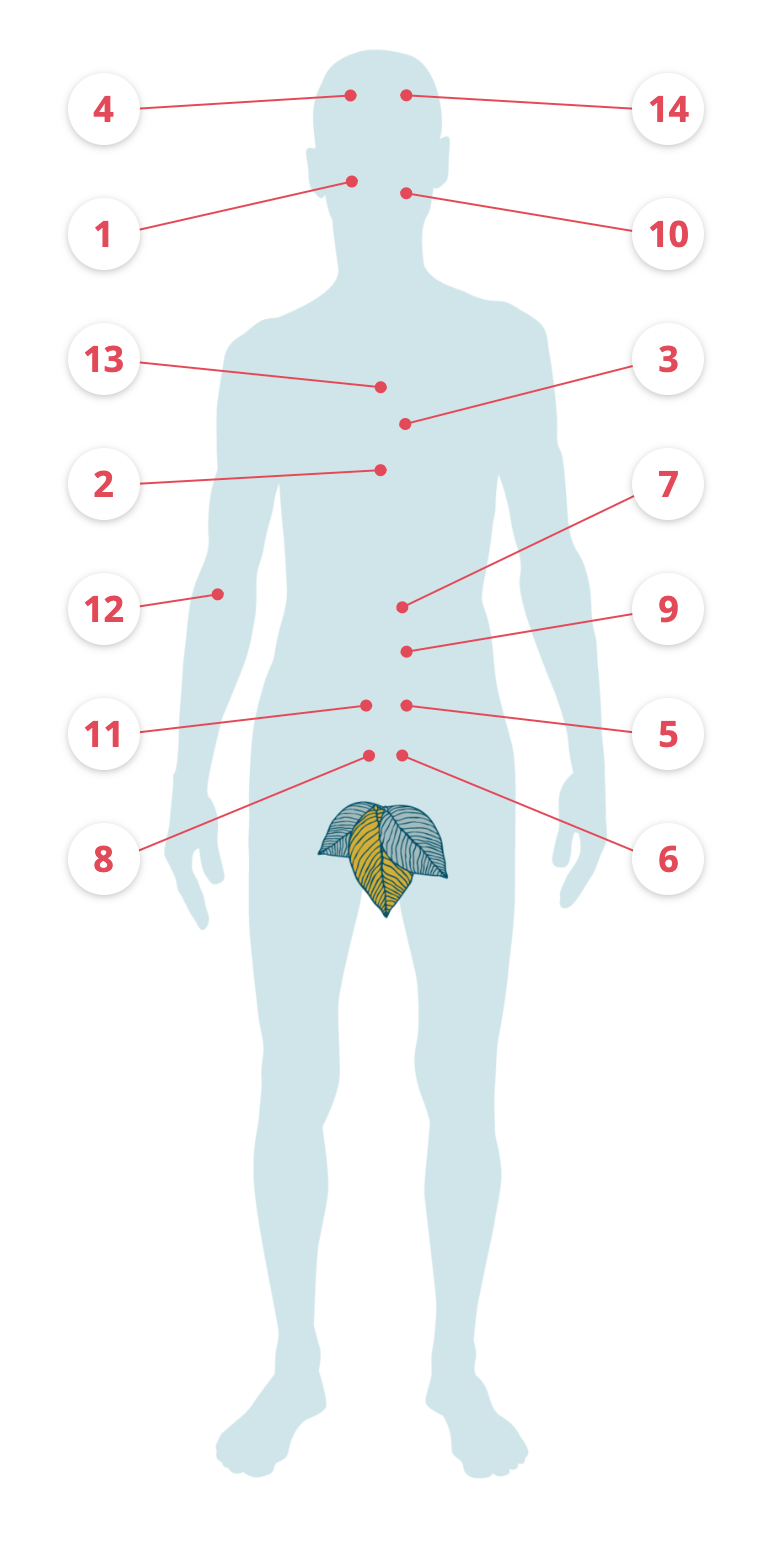Health

Medical research shows: the right bacteria promote our health

Many scientific studies demonstrate the positive effects of probiotics on food-related allergic diseases. In allergy sufferers, the harmful effects of antigens are reduced by active, anti-inflammatory bacteria.
Quelle: Majamaa H & Isolauri E (1997) Probiotics: a novel approach in the management of food allergy. J. Allergy Clin. Immunol. 99:179–18
Nattokinase, a protein from the Japanese dish natto (fermented soybeans), has a positive effect on the body because it lowers blood pressure, prevents vascular diseases, and has fibrinolytic properties. As a result, nattokinase lowers high blood pressure and is considered a good protection against stroke, heart attack, pulmonary embolism, and even Alzheimer's.
Quelle: Ruei-Lin Hsu et a., Amyloid-Degrading Ability of Nattokinase from Bacillus subtilis Natto, J. Agric. Food Chem. 2009, 57, 503–508
The lactobacillus found in fermented foods reduces cholesterol levels in the blood. With the help of a healthy gut flora, cholesterol can be broken down into alternative substances, which are then ultimately excreted through the stool.
Quelle: Bukowska H. et a., Decrease in fibrinogen and LDL-cholesterol levels upon supplementation of diet with Lactobacillus plantarum in subjects with moderately elevated cholesterol, Atherosclerosis. 1998 Apr;137(2):437-8; Laparra et a., Interactions of gut microbiota with functional food components and nutraceuticals. Pharmacology Research 2010;61(3):219-25.
It has been proven that not only can the brain influence the gut, but also that the gut can indeed influence the brain and thus the emotional well-being of a person. Studies have shown that people who consume traditionally fermented foods tend to be more positive and stress-resistant. They are less likely to suffer from depressive symptoms or anxiety disorders.
Quelle: Eva M Selhub et a.: Fermented foods, microbiota, and mental health: ancient practice meets nutritional psychiatry, J Physiol Anthropol. 2014; 33(1): 2.
The balance of gut flora through lactic acid bacteria can help in the effective prevention and treatment of diabetes. These bacteria release appetite-regulating hormones and effectively stimulate metabolism.
Quelle: Rad A. et a., The Future of Diabetes Management by Healthy Probiotic Microorganisms, Curr Diabetes Rev. 2017;13(6): 582-589.
Yeast and other probiotics help, according to clinical observations, in the prevention and treatment of antibiotic-associated diarrhea. Selected probiotics can shorten the duration of diarrhea caused by rotavirus.
Quelle: Gismondo MR et a. (1999), Review of probiotics available to modify gastrointestinal flora. Int. J. Antimicrobial Agents 12: 287–292; Saavedra JM et a. (1994) Feeding of Bifidobacterium bifidum and Streptococcus thermophilus to infants in hospital for prevention of diarrhoea and shedding of rotavirus. Lancet 344: 1046–1049.
Helicobacter pylori infections are among the most common chronic bacterial infections worldwide. The bacterium promotes inflammation of the stomach (gastritis, stomach ulcers) and the small intestine mucosa (duodenal ulcers), which can lead to cancer in chronic cases. The medical treatment of the infection causes numerous unwanted effects such as diarrhea and nausea. A study showed that lactic acid bacteria can reduce side effects and improve therapy.
Quelle: Sanz Y, De Palma G.. Int Rev Immunol. 2009.
Most epidemiological studies recommend the regular daily consumption of fermented products because they can reduce the risk of certain types of cancer. The intake of live bacteria, probiotic products, and polyphenols has been shown to reduce the risk of colorectal cancer according to trial results.
Quelle: Hirayama K & Rafter J (2000) The role of probiotic bacteria in cancer prevention. Microbes Infect. 2: 681–686; Davis CD and Milner JA, Gastrointestinal microflora, food components and colon cancer prevention, J Nutr Biochem. 2009 Oct;20(10):743-52.
According to studies, people with lactose intolerance tolerate fermented dairy products well.
Quelle: Vesa T et a. (2000) Lactose intolerance. J. Am. Coll. Nutr. 19: 165S–175S
If probiotic products are administered to babies at high risk for atopic dermatitis - either before or after birth - over a period of six months, the likelihood of an outbreak of the skin condition can be reduced by about half. Even during the first seven years of life, probiotics help prevent eczema.
Probiotics, and in particular Lactobacillus plantarum, obviously play an important role in the function of the intestines. All patients treated with lactic acid bacteria in a corresponding study reported a reduction in their irritable bowel symptoms.
Quelle: Niedzielin K. et a., A controlled, double-blind, randomized study on the efficacy of Lactobacillus plantarum 299V in patients with irritable bowel syndrome, Eur J Gastroenterol Hepatol. 2001 Oct;13(10):1143-7.6
Some types of bacteria suppress the onset of arthritis. The right composition of gut bacteria could outline new or preventive treatment options for those affected.
Quelle: Yuichi Maeda and Kiyoshi Takeda, Role of Gut Microbiota in Rheumatoid Arthritis, J. Clin. Med. 2017, 6(6), 60.
Lactic acid bacteria have the property of regulating the immune system. This means that the probiotic bacteria are able to normalize the permeability of the intestinal mucosa and positively alter the gut flora. By strengthening the immunological barrier function, the inflammatory response of the intestine is reduced.
Quelle: Isolauri E (2001) Probiotics in human disease. Am. J. Clin. Nutr. 73: S1142–S1146.
Lactic acid bacteria reduce the permeability of the intestinal mucosa, which can occur as a typical consequence of stress. This reduces the perception of stress and helps prevent possible overreactions.
Quelle: Foster et a.: Gut-brain axis: how the microbiome influences anxiety and depression. Trends Neurosci. 2013 May;36(5):305-12.